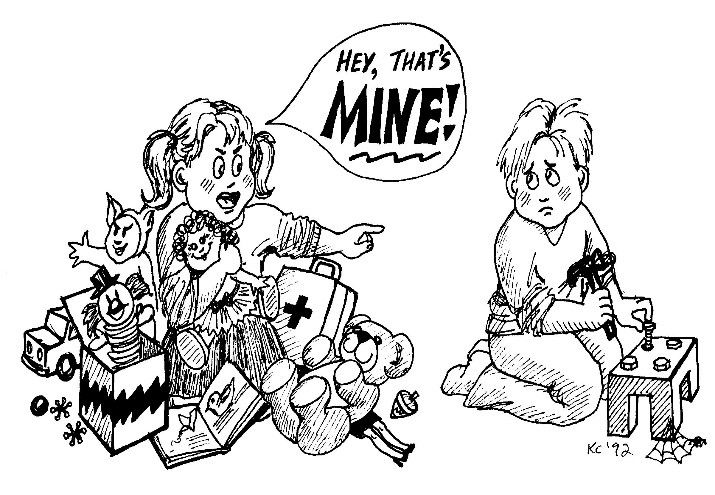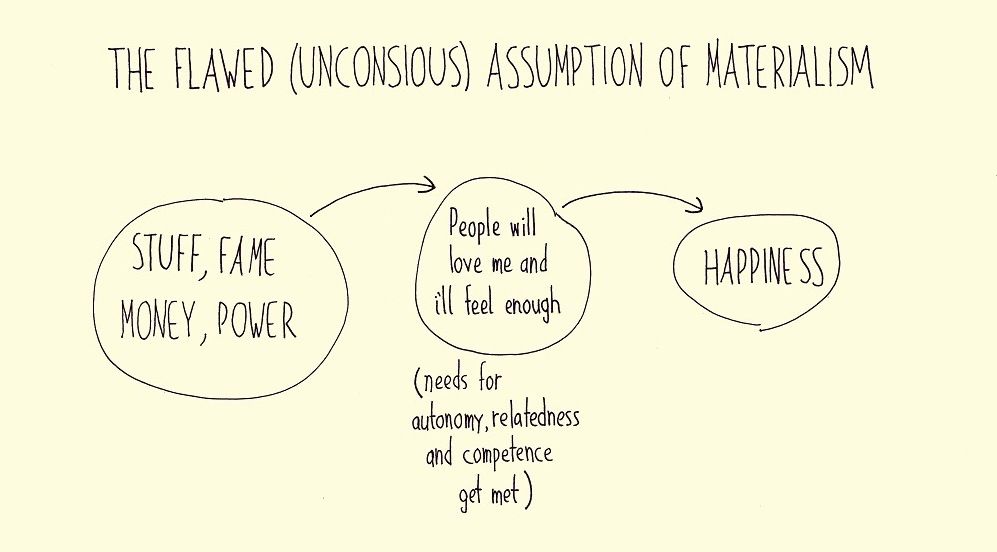
Materialism – The biggest hurdle in a happy life
Materialism: buying things we don’t need with the money we don’t have to impress the people who don’t matter. It is a property which most of us possess in one way or other. We will discuss this in detail here. You will be a happier person after reading this article.
I stay in Chandigarh (India). In my community, young people are crazy for Punjabi Songs, which generally show luxury cars, big bungalows, guns, alcohol, etc. These things excite the young generation like anything.
New singers are emerging every other day and people are increasingly getting mad for the type of big lifestyle they see in those song videos. This, in a way, is forcing the brain power of the entire generation to shrink and become more materialistic than ever.
Cycle of Materialism
With the dreams of having a better lifestyle inspired by the music industry, people are emigrating to western countries and spending a ton of money for getting resident status there. This is a part of even bigger fallacy.
So, the question was, how materialism affects happiness? Actually, here, I am taking a bigger case scenario. Just try to relate to your condition. People, in my case, are leaving their families and are taking too much long term approach.
This is giving them hope for the future pleasures at the big cost of present-day happiness. They expect to work for just a few years and then have a fuller life with all those luxury things they have seen in movies, songs, back at home.

But they fail to understand that most people who had emigrated 5-7 yrs ago haven’t really got fulfilled with whatever they have achieved. You decide on some goals. Achieve them. Then it keeps on going.
Hot Read: Why I am an Atheist? | A Logical Explanation
Problem
If we just focus on acquiring the materials goals, then we can never stay happy for a long period of time. The happiness will last for a while after we have achieved something and then diminish, forcing the achiever to aim for even higher goals. This way, it keeps on repeating until the person, consciously leaves.
The students in my case are young blood inspired by the luxury music industry. They are at a stage of their lives where there isn’t enough knowledge in them to think and moreover, this gets even worse when there is no one to guide.
So, instead of being creative and develop something at their own home, people are traveling so far to show their knowledge and dedication, thinking of getting successful.
I have found a factor which can make you successful. You can read about that after getting through this article. Let’s revert back to Punjabis for now.
Summary
Sorry, if you feel like I haven’t made you clearly understand my point of materialism in the article above. This summary is for us. So, the main point is that Humans, forced by their values and body structure, think the either too long or short term for the pursuit of happiness.
On the way, they perceive that material things (like big houses, cars, expensive clothes, etc.) provide real happiness in life. This actually happens because our body is programmed to get happy for a short interval when somebody achieves a small goal. The reason for this happiness is just to keep us moving in our journeys. Its no way substitute for eternal calmness and fulfillment.
But, many people think of it as the only way of getting happy. This results in the cycle of materialism and long term unhappiness. Actually, there is no one-step solution to this perception. But, realizing the truth that why you are getting caught in this fallacy can help your life get better.
This is the reason I always suggest to regularly read books for mental and physical growth. Actually, Fallacies are everywhere, we need to get smart.
Positive Impact

Now, let’s talk about how getting over the hangover of materialism cycle can help you get a happy life. Next time, when you will be shopping around, you won’t waste any money on stuff which you usually buy to impress other people. This way, you will have a little more money to save for the worst case scenario.
Then, you will also not be tensed about the way other people think about you. This can help you stay calmer and focused towards the real goals of your life which can provide you long term happiness. There are just enormous benefits. Keep your eyes and mind open. Read these tips to live stress-free.
Our body isn’t perfect but you can work on it to make it better.
Supinder Singh




Thank you for the work you are doing.
I stay in South Africa. The plenitude of South Africa does indicate its people’s desire for plenty, a reaction to the hunger and want of freedom. Its’ mainly the frustrated desire to fulfill the ANC/ SACP/ COSATU promise of equality that leads to the proliferation of goods: since you can’t really make all people equal, you end up giving them all an equal right to buy whatever you want. So, South Africans want the materialistic goods for itself? I think “possessions… are not wanted for their own sakes but as tokens of an ideal state of freedom,” “‘Keeping up with the Joneses’ is a vulgarization of the ANC concept, but it too is a declaration of the rights of man, and decidedly unfeasible and visionary. There are to many of South Africans who still believed that money brings happiness. We pursue extrinsic goals when our core human needs for autonomy, relatedness, and competence aren’t being met. We then believe (oftentimes unconsciously) that these needs will get met once we’re rich or famous or more powerful. This is the flawed assumption materialism is based on. We think we need all this stuff before we can be happy. There’s an invisible force in this world that turns people into selfish, ungrateful, anti-social, unfriendly, and miserable creatures. Buying more stuff is associated with depression, anxiety and broken relationships. It is socially destructive and self-destructive. Owning more doesn’t bring happiness: ‘the material pursuit of self-esteem reduces self-esteem.’ Endless pictures in our society of expensive cars, brand named clothes and shoes, expensive imported alcohol, mansions, swimming pools and spoilt boys and girls throwing gangster poses in private jets – of something worse – from political parties who are fighting for the Economic Freedom (EFF – political party) has left many not only scratching their heads, but accusing the freedom fighters of hypocrisy. Something that, after you have seen a few dozen, becomes disorienting, even distressing. Perhaps I’m projecting my prejudices. But an impressive body of psychological research seems to support these feelings. It suggests that materialism, a trait that can afflict both rich and poor, and which the researchers define as “a value system that is preoccupied with possessions and the social image they project”, is both socially destructive and self-destructive. It smashes the happiness and peace of mind of those who succumb to it. It’s associated with anxiety, depression and broken relationships. There has long been a correlation observed between materialism, a lack of empathy and engagement with others, and unhappiness. Indeed,” if we just focus on acquiring the materials goals, then we can never stay happy for a long period of time. The happiness will last for a while after we have achieved something and then diminish, forcing the achiever to aim for even higher goals. This way, it keeps on repeating until the person, consciously leaves.” The South African society in my case “are at a stage of their lives where there isn’t enough knowledge in them to think and moreover, this gets even worse when there is no one to guide.”
What can we do to “..getting over the hangover of materialism cycle” and be a happy society? I think: Use money to free, not chain, yourself. When you have a larger income, don’t simply adapt by increasing your lifestyle. Instead work to create a buffer between your income and lifestyle so you live below your means. This will give you more freedom to pursue goals and ideas that may not immediately contribute to your productivity.